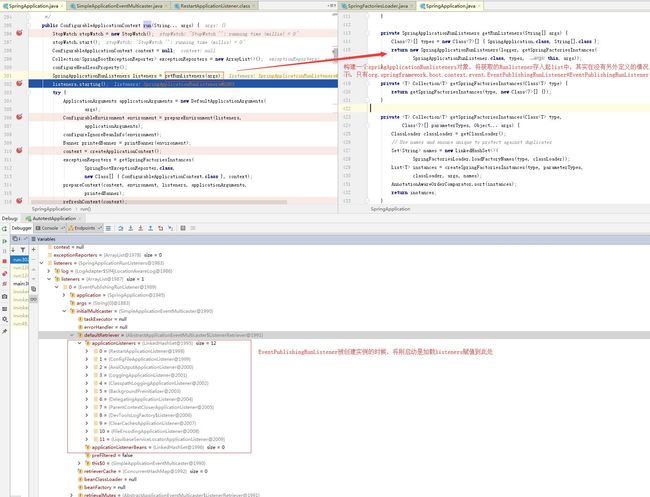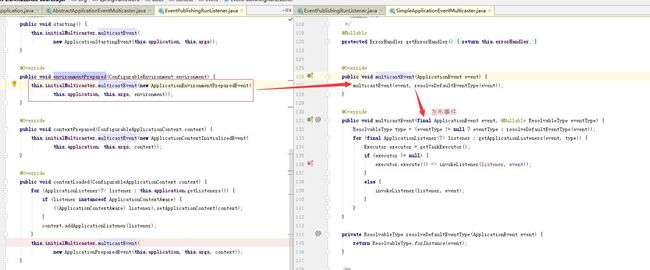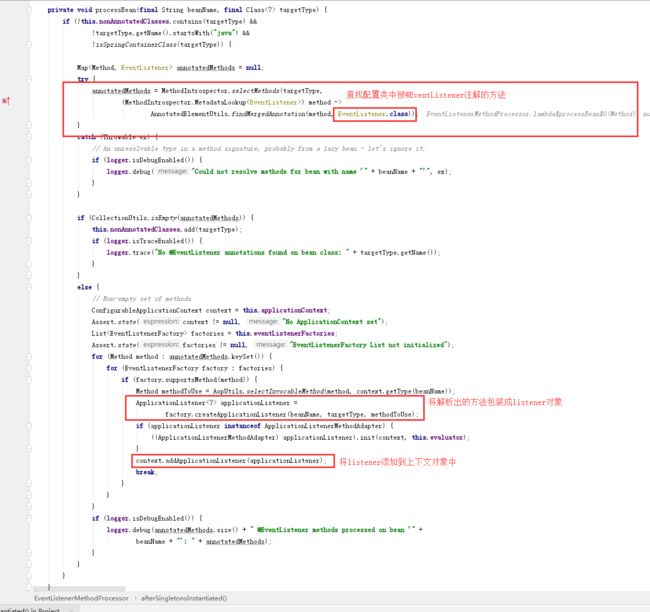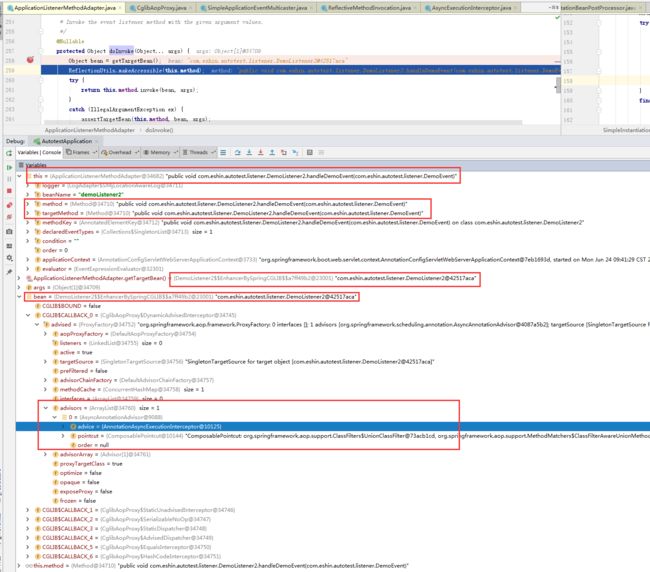- 简识JVM中并发垃圾回收器和多线程并行垃圾回收器的区别
天天向上杰
jvmjava算法
在JVM中,多线程并行垃圾回收器和并发垃圾回收器是两种不同类型的垃圾回收机制,它们的主要区别在于垃圾收集线程与用户线程之间的运行关系,以及这种关系对应用程序性能的影响。以下是对这两种垃圾回收器的详细比较:一、多线程并行垃圾回收器定义与特点:多线程并行垃圾回收器(如ParallelGC)利用多核CPU的优势,通过多个垃圾收集线程同时工作来提高垃圾回收的效率。这些垃圾收集线程在垃圾回收过程中是并行的,
- C# Process.Start()方法详解 调用其他exe 程序
刘欢(C#)
winformwinformProcess.Start
System.Diagnostics.Process.Start();能做什么呢?它主要有以下几个功能:1、打开某个链接网址(弹窗)。2、定位打开某个文件目录。3、打开系统特殊文件夹,如“控制面板”等。那么它是怎么实现这几个功能的呢?在讲应用前,我们先来看看Process.Star()的构造方法。名称说明Process.Start()启动(或重用)此Process组件的StartInfo属性指定的
- 数据库连接池是如何工作的?
大懒猫软件
数据库网络
连接池是一种用于管理和复用连接(如数据库连接或网络连接)的技术,广泛应用于数据库操作和网络请求中,以提高应用程序的性能和资源利用率。以下是连接池的工作原理和机制的详细解释:连接池的工作原理1.初始化阶段在应用程序启动时,连接池会根据配置参数预先创建一定数量的连接对象,并将这些连接存储在一个容器(如队列或列表)中。这些连接处于空闲状态,等待被应用程序请求使用。2.获取连接当应用程序需要与外部资源(如
- Vue.js组件开发详解
小俊学长
vue.jsflutter前端
Vue.js组件开发详解Vue.js是一个用于构建用户界面的渐进式框架,其核心思想是通过数据驱动视图的变化,同时提供了一系列强大的工具来帮助开发者高效地开发复杂的单页应用。在Vue.js中,组件是构建复杂应用的基本单元,通过组件化开发,我们可以将应用拆分成可复用的、独立的模块,从而提高开发效率和代码的可维护性。本文将详细讲解Vue.js组件的开发过程,从基础概念到高级技巧,全面覆盖组件开发的各个方
- SpringBoot继承JWT token实现权限的验证(从头开始)
CodeGuruInk
springbootjava后端
目录概述前提:我们需要知道的文件的用处第1步:数据库的连接第2步:定义一个标准化响应对象的类第3步:编写请求数据库数据代码第4步:自定义异常处理第5步:导入依赖第6步:自定义拦截器第7步:配置拦截器第8步:生成token第9步:开始测试代码第10步:vue请求示例扩展:自定义注解AuthAccess总结概述在开发后端接口时,数据的直接暴露可能会导致安全问题。为了应对这种情况,我们需要在访问接口时进
- 『大模型笔记』AI自动化编程工具汇总[持续更新ING]!
AI大模型前沿研究
大模型笔记大模型AI自动化工具bolt.newCursorV0
『大模型笔记』AI自动化编程工具汇总!文章目录一.Bolt.new(开源AI驱动全栈Web开发工具)1.1.Bolt.new介绍1.2.编程小白如何打造自己的导航网站二.Cursor(人工智能代码编辑器)2.1.Cursor入门教程2.2.Cursor左侧布局设置和VSCode一样2.3.Cursor效率之道:Agent模式+7大高级技巧详解三.Windsurf(颠覆Cursor的全新工具)3.1
- C# System.Diagnostics.Process.Start()
Godsight
C#基本语法
C#Process.Start()方法详解System.Diagnostics.Process.Start();能做什么呢?它主要有以下几个功能:1、打开某个链接网址(弹窗)。2、定位打开某个文件目录。3、打开系统特殊文件夹,如“控制面板”等。那么它是怎么实现这几个功能的呢?在讲应用前,我们先来看看Process.Star()的构造方法。名称说明Process.Start()启动(或重用)此Pro
- 【C语言】预处理详解
星霜旅人
c语言
他们想要逃避工作的压迫,却又被功绩社会深植的价值观绑架。预定义符号1.C语言设置了⼀些预定义符号,可以直接使用,预定义符号也是在预处理期间处理的。1__FILE__//进⾏编译的源⽂件2__LINE__//⽂件当前的⾏号3__DATE__//⽂件被编译的⽇期4__TIME__//⽂件被编译的时间5__STDC__//如果编译器遵循ANSIC,其值为1,否则未定义#includeintmain(){
- 流媒体直播实时视频延迟时间排查和剖析:gop关键帧间隔导致延迟,流媒体和播放器缓存,B帧等导致的延迟
eguid_1
#1.4.3版本)直播延迟视频延迟直播平台播放延迟网络延迟
本章是流媒体直播实时视频延迟时间排查和剖析javaCV系列文章:javacv开发详解之1:调用本机摄像头视频javaCV开发详解之2:推流器实现,推本地摄像头视频到流媒体服务器以及摄像头录制视频功能实现(基于javaCV-FFMPEG、javaCV-openCV)javaCV开发详解之3:收流器实现,录制流媒体服务器的rtsp/rtmp视频文件(基于javaCV-FFMPEG)
- Redis基本命令详解
微刻时光
Redisredis数据库缓存
1.基本命令命令不区分大小写,而key是区分大小写的#select数据库间的切换数据库共计16个127.0.0.1:6379>select1#dbsize返回当前数据库的key的数量127.0.0.1:6379[1]>dbsize#keys*查看数据库所有的key127.0.0.1:6379[1]>keys*#flushdb清除当前数据库127.0.0.1:6379[1]>flushdb#flus
- linux下nginx部署以及配置详解
由数入道
运维服务器
单台配置linux下nginx部署以及配置详解-韦邦杠-博客园(cnblogs.com)多台配置在linux系统下安装两个nginx以及启动、停止、重起-韦邦杠-博客园(cnblogs.com)
- C++学生学籍管理系统开发详解
悦闻闻
本文还有配套的精品资源,点击获取简介:学生学籍管理系统是高校或教育机构中管理学生信息的重要工具。本项目详细介绍基于C++实现该系统的关键技术和方法。从面向对象编程、数据结构的选择,到数据库操作、运算符重载、文件I/O处理、用户界面设计、异常处理,以及单元测试等,系统地覆盖了构建高效、稳定学籍管理系统的全过程。1.面向对象编程基础面向对象编程(OOP)是现代编程范式的核心,它允许开发者通过类和对象来
- AHK的相似取色
睡不醒的小泽
#AHK自动化Autohotkey
简介PixelGetColor通常用于在特定像素处获取单一颜色值,这对于大多数应用程序来说是足够的。然而,一些带有反作弊机制的软件,例如《英雄联盟》的外服版本,会对图像进行模糊处理(Fuzz处理)。在这种情况下,我们需要采用一种能够识别颜色相似性的取色方法,以确保逻辑的正确执行。绝对取色先给出绝对取色的代码:;取色组GetColor(x,y){PixelGetColor,color,x,y,RGB
- 细节增强注意力模型DEAB详解及代码复现
清风AI
深度学习算法详解及代码复现深度学习人工智能神经网络python计算机视觉机器学习conda
基本原理DEAB模型的基本原理是通过细节增强卷积(DEConv)和内容引导注意力(CGA)机制的协同工作来实现细节增强注意力功能。这种设计使得模型能够在处理图像时更好地保留细节信息,同时关注图像中的重要内容。DEAB模型的核心组件包括:细节增强卷积(DEConv):DEConv是一种创新的卷积层设计,通过并行部署普通卷积和差分卷积来增强特征提取能力。差分卷积包括中心差分卷积(CDC)、角差分卷积(
- 【系统架构设计师-2023年真题】综合知识-答案及详解
数据知道
系统架构设计师(软考高级)系统架构综合知识架构系统架构设计师软考高级
更多内容请见:备考系统架构设计师-核心总结索引文章目录【第1~2题】【第3题】【第4~5题】【第6题】【第7题】【第8题】【第9题】【第10~11题】【第12题】【第13题】【第14题】【第15题】【第16题】【第17题】【第18题】【第19题】【第20题】【第21~22题】【第23题】【第24~25题】【第26题】【第27题】【第28题】【第29题】【第30题】【第31题】【第32~33题】【第
- Alibaba Spring Cloud 十七 Sentinel熔断降级
空灵宫(Ethereal Palace)
AlibabaSpringCloudspringcloudsentinelspring
概述在微服务架构中,熔断与降级是保证系统稳定性的重要机制,能有效防止故障蔓延或雪崩效应。当某个服务出现异常、延迟过高或错误率过高时,触发熔断保护,将该服务“隔离”一段时间,避免影响整体系统的吞吐和可用性。SpringCloudAlibabaSentinel提供了灵活的熔断降级(Degrade)机制,可以根据响应时间(RT)、异常比例或异常数等指标,自动触发熔断并执行相应的降级策略,为业务提供及时的
- 若依拓展开源项目
ProfessorYang_mc
开源
若依后端启动类@SpringBootApplication(exclude={DataSourceAutoConfiguration.class})publicclassRuoYiApplication{publicstaticvoidmain(String[]args){ConfigurableApplicationContextrun=SpringApplication.run(RuoYiAp
- django项目部署ubuntu服务器,Ubuntu部署Django项目方法详解
weixin_39965075
教程使用的软件版本:Ubuntu18.04.1LTS,django2.0,Python3.6.5、nginx-1.13.7、uWSGI(2.0.17.1),Ubuntu是纯净的,全新的。下面我们开始来部署。如果觉得看文字没意思,想看视频教程的,请点击这里:Django项目部署视频教程一、更新操作系统和安装依赖包#更新操作系统软件库sudoapt-getupdatesudoapt-getupgrad
- 自动化测试工具Ranorex Studio(五十一)-如何做基于图像的自动化
机器视觉小小测试员
自动化ui运维
如何做基于图像的自动化如果Ranorex不能明确地识别某些你的GUI元素,那么使用基于图像的机制来自动化它们将会大有帮助。C#//Createbitmaptosearchfor//withinapplicationformand//clickitBitmapbmp=Ranorex.Imaging.Load(@”..\..\GreenSeaTurtleSmall.bmp”);//Performsar
- springboot开启异步注解功能
白不懂黑的静
spingboot
主要记录内容:在springboot中如何开启异步注解功能,异步注解功能开启后,可以让在调用异步功能时,系统可以自动接着往下走,而不用一直在等待异步功能完成才可以接着走下一步任务。前提:内容时基于springboot实现的。一、service层代码:在service中定义了一个测试异步的代码:在方法上增加@Async注解packagecom.demo.service;importorg.sprin
- CPU中断机制
万物琴弦光锥之外
操作系统操作系统
CPU的中断机制是操作系统和硬件之间通信的重要方式,用于处理外部事件和内部任务。中断可以分为硬中断(HardwareInterrupts)和软中断(SoftwareInterrupts)。以下是详细的讲解:1.中断的基本概念定义中断:是一种异步事件,它会打断当前正在执行的程序或指令流,使CPU转而去处理特定的中断服务程序(InterruptServiceRoutine,ISR),处理完毕后再返回原
- springboot 配置redis
Leaf吧
springbootspringbootredis后端
环境配置springboot3.4redis5.0.14redis准备参考下面文章window下安装redis以及启动redis客户端安装引入依赖org.springframework.bootspring-boot-starter-data-redis该依赖默认引入Lettuce作为默认客户端从SpringBoot2.x版本开始,Redis的默认客户端是Lettuce。如果你没有特别指定客户端,
- SpringBoot如何开启异步编程
肥肥技术宅
javaspringbootjavaspring
一、什么是异步?现在我们假设有一个接口方法,里面又调用了三个子方法,分别是A,B,C。先从A执行,执行完毕再执行B,B执行完最后执行C。这也是我们代码最常见的执行方式。ABC顺序执行,其中一个出问题了,如果抛出了异常,后续则不再执行。这中方式就是同步执行。那么异步执行是什么样子的呢?假设B方法改为异步,那么A方法执行完毕,执行B方法。此时不需要等B方法执行完毕,代码会直接执行C方法。也就是B方法不
- ArkUI页面导航机制
荔枝寄
harmonyos
鸿蒙操作系统(HarmonyOS)是华为公司自主研发的分布式操作系统,旨在为不同设备提供统一的操作平台。它支持多种终端设备,包括但不限于智能手机、平板电脑、智能手表等,并能够实现设备间的无缝协同工作。为了适应这一特性,鸿蒙引入了ArkUI,一个专为鸿蒙设计的用户界面开发框架。ArkUI页面导航机制在鸿蒙操作系统中,页面导航是指在应用的不同页面之间进行切换和传递数据的过程。良好的页面导航设计对于用户
- 基于springboot在线考试系统
2201_75927219
计算机毕业设计springboot后端java
基于SpringBoot的在线考试系统是一种现代化的教育考试解决方案,它结合了SpringBoot框架的高效性和在线考试的便捷性,为教育机构、教师和学生提供了一个功能强大、易于使用的在线考试平台。一、系统背景与意义随着教育数字化的推进和在线学习需求的增长,传统的纸质考试方式已经逐渐显示出局限性,特别是在灵活性和可访问性方面。在线考试系统的开发正是响应这一趋势,它允许教育机构在任何时间、任何地点进行
- Java创建型模式(一)——单例设计模式(饿汉式、懒汉式、枚举式,以及序列化反序列化破环单例模式和反射破环单例模式及破环单例模式的解决办法 | 完成详解,附有代码+案例)
蔚一
Java知识java设计模式开发语言intellij-idea单例模式
文章目录单例设计模式4.1.1单例模式的结构4.1.2单例模式的实现4.1.2.1饿汉式-静态变量方式4.1.2.2饿汉式-静态代码块方式4.1.2.3懒汉式-线程不安全4.1.2.4懒汉式-线程安全4.1.2.5懒汉式-双重检查锁4.1.2.6饿汉式—枚举类4.3单例模式存在的问题4.3.1序列化反序列化破环单例模式4.3.2反射破环单例模式4.4解决单例模式存在的问题4.4.1序列化、反序列方
- 第11篇:你知道ElasticSearch聚合分析能力有多强?
老王随聊
elasticsearch搜索引擎大数据
背景:目前国内有大量的公司都在使用Elasticsearch,包括阿里、京东、滴滴、今日头条、小米、vivo等诸多知名公司。除了搜索功能之外,Elasticsearch还结合Kibana、Logstash、ElasticStack还被广泛运用在大数据近实时分析领域,包括日志分析、指标监控等多个领域。本节内容:ElasticSearch强悍聚合分析能力详解。目录1、ES的聚合Aggregations
- 企业级应用框架guns架构与开发实践
福建低调
本文还有配套的精品资源,点击获取简介:在IT领域,企业架构是组织信息和技术集成设计的关键。"guns"项目提供了一套高效、灵活且可扩展的企业管理架构设计框架。本文深入探讨guns项目的核心特性、应用场景和开发实践,以及如何使用不同的集成开发环境(IDE)进行项目开发。guns基于SpringBoot框架,集成MyBatis和Shiro,简化了微服务开发和权限控制,确保了数据安全。文章还详细介绍了g
- golang网络编程
编程小猹
go学习go网络编程
socket编程socket图解Socket是BSDUNIX的进程通信机制,通常也称作”套接字”,用于描述IP地址和端口,是一个通信链的句柄。Socket可以理解为TCP/IP网络的API,它定义了许多函数或例程,程序员可以用它们来开发TCP/IP网络上的应用程序。电脑上运行的应用程序通常通过”套接字”向网络发出请求或者应答网络请求。Socket又称“套接字”,应用程序通常通过“套接字”向网络发出
- Spring注解09——BeanPostProcessor后置处理器深度剖析
大黄奔跑
Spring注解驱动
该系列文章主要学习雷丰阳老师的《Spring注解驱动》课程总结。原课程地址:课程地址包括了自己阅读其他书籍《Spring揭秘》《SpringBoot实战》等课程。该系列文档会不断的完善,欢迎大家留言及提意见。文章目录1.写在之前2.BeanPostProcessor是什么3.xxxBeanPostProcessor源码分析4.Spring框架用该接口干嘛呢?总结1.写在之前本篇会有一些源码的分析,
- rust的指针作为函数返回值是直接传递,还是先销毁后创建?
wudixiaotie
返回值
这是我自己想到的问题,结果去知呼提问,还没等别人回答, 我自己就想到方法实验了。。
fn main() {
let mut a = 34;
println!("a's addr:{:p}", &a);
let p = &mut a;
println!("p's addr:{:p}", &a
- java编程思想 -- 数据的初始化
百合不是茶
java数据的初始化
1.使用构造器确保数据初始化
/*
*在ReckInitDemo类中创建Reck的对象
*/
public class ReckInitDemo {
public static void main(String[] args) {
//创建Reck对象
new Reck();
}
}
- [航天与宇宙]为什么发射和回收航天器有档期
comsci
地球的大气层中有一个时空屏蔽层,这个层次会不定时的出现,如果该时空屏蔽层出现,那么将导致外层空间进入的任何物体被摧毁,而从地面发射到太空的飞船也将被摧毁...
所以,航天发射和飞船回收都需要等待这个时空屏蔽层消失之后,再进行
&
- linux下批量替换文件内容
商人shang
linux替换
1、网络上现成的资料
格式: sed -i "s/查找字段/替换字段/g" `grep 查找字段 -rl 路径`
linux sed 批量替换多个文件中的字符串
sed -i "s/oldstring/newstring/g" `grep oldstring -rl yourdir`
例如:替换/home下所有文件中的www.admi
- 网页在线天气预报
oloz
天气预报
网页在线调用天气预报
<%@ page language="java" contentType="text/html; charset=utf-8"
pageEncoding="utf-8"%>
<!DOCTYPE html PUBLIC "-//W3C//DTD HTML 4.01 Transit
- SpringMVC和Struts2比较
杨白白
springMVC
1. 入口
spring mvc的入口是servlet,而struts2是filter(这里要指出,filter和servlet是不同的。以前认为filter是servlet的一种特殊),这样就导致了二者的机制不同,这里就牵涉到servlet和filter的区别了。
参见:http://blog.csdn.net/zs15932616453/article/details/8832343
2
- refuse copy, lazy girl!
小桔子
copy
妹妹坐船头啊啊啊啊!都打算一点点琢磨呢。文字编辑也写了基本功能了。。今天查资料,结果查到了人家写得完完整整的。我清楚的认识到:
1.那是我自己觉得写不出的高度
2.如果直接拿来用,很快就能解决问题
3.然后就是抄咩~~
4.肿么可以这样子,都不想写了今儿个,留着作参考吧!拒绝大抄特抄,慢慢一点点写!
- apache与php整合
aichenglong
php apache web
一 apache web服务器
1 apeche web服务器的安装
1)下载Apache web服务器
2)配置域名(如果需要使用要在DNS上注册)
3)测试安装访问http://localhost/验证是否安装成功
2 apache管理
1)service.msc进行图形化管理
2)命令管理,配
- Maven常用内置变量
AILIKES
maven
Built-in properties
${basedir} represents the directory containing pom.xml
${version} equivalent to ${project.version} (deprecated: ${pom.version})
Pom/Project properties
Al
- java的类和对象
百合不是茶
JAVA面向对象 类 对象
java中的类:
java是面向对象的语言,解决问题的核心就是将问题看成是一个类,使用类来解决
java使用 class 类名 来创建类 ,在Java中类名要求和构造方法,Java的文件名是一样的
创建一个A类:
class A{
}
java中的类:将某两个事物有联系的属性包装在一个类中,再通
- JS控制页面输入框为只读
bijian1013
JavaScript
在WEB应用开发当中,增、删除、改、查功能必不可少,为了减少以后维护的工作量,我们一般都只做一份页面,通过传入的参数控制其是新增、修改或者查看。而修改时需将待修改的信息从后台取到并显示出来,实际上就是查看的过程,唯一的区别是修改时,页面上所有的信息能修改,而查看页面上的信息不能修改。因此完全可以将其合并,但通过前端JS将查看页面的所有信息控制为只读,在信息量非常大时,就比较麻烦。
- AngularJS与服务器交互
bijian1013
JavaScriptAngularJS$http
对于AJAX应用(使用XMLHttpRequests)来说,向服务器发起请求的传统方式是:获取一个XMLHttpRequest对象的引用、发起请求、读取响应、检查状态码,最后处理服务端的响应。整个过程示例如下:
var xmlhttp = new XMLHttpRequest();
xmlhttp.onreadystatechange
- [Maven学习笔记八]Maven常用插件应用
bit1129
maven
常用插件及其用法位于:http://maven.apache.org/plugins/
1. Jetty server plugin
2. Dependency copy plugin
3. Surefire Test plugin
4. Uber jar plugin
1. Jetty Pl
- 【Hive六】Hive用户自定义函数(UDF)
bit1129
自定义函数
1. 什么是Hive UDF
Hive是基于Hadoop中的MapReduce,提供HQL查询的数据仓库。Hive是一个很开放的系统,很多内容都支持用户定制,包括:
文件格式:Text File,Sequence File
内存中的数据格式: Java Integer/String, Hadoop IntWritable/Text
用户提供的 map/reduce 脚本:不管什么
- 杀掉nginx进程后丢失nginx.pid,如何重新启动nginx
ronin47
nginx 重启 pid丢失
nginx进程被意外关闭,使用nginx -s reload重启时报如下错误:nginx: [error] open() “/var/run/nginx.pid” failed (2: No such file or directory)这是因为nginx进程被杀死后pid丢失了,下一次再开启nginx -s reload时无法启动解决办法:nginx -s reload 只是用来告诉运行中的ng
- UI设计中我们为什么需要设计动效
brotherlamp
UIui教程ui视频ui资料ui自学
随着国际大品牌苹果和谷歌的引领,最近越来越多的国内公司开始关注动效设计了,越来越多的团队已经意识到动效在产品用户体验中的重要性了,更多的UI设计师们也开始投身动效设计领域。
但是说到底,我们到底为什么需要动效设计?或者说我们到底需要什么样的动效?做动效设计也有段时间了,于是尝试用一些案例,从产品本身出发来说说我所思考的动效设计。
一、加强体验舒适度
嗯,就是让用户更加爽更加爽的用你的产品。
- Spring中JdbcDaoSupport的DataSource注入问题
bylijinnan
javaspring
参考以下两篇文章:
http://www.mkyong.com/spring/spring-jdbctemplate-jdbcdaosupport-examples/
http://stackoverflow.com/questions/4762229/spring-ldap-invoking-setter-methods-in-beans-configuration
Sprin
- 数据库连接池的工作原理
chicony
数据库连接池
随着信息技术的高速发展与广泛应用,数据库技术在信息技术领域中的位置越来越重要,尤其是网络应用和电子商务的迅速发展,都需要数据库技术支持动 态Web站点的运行,而传统的开发模式是:首先在主程序(如Servlet、Beans)中建立数据库连接;然后进行SQL操作,对数据库中的对象进行查 询、修改和删除等操作;最后断开数据库连接。使用这种开发模式,对
- java 关键字
CrazyMizzz
java
关键字是事先定义的,有特别意义的标识符,有时又叫保留字。对于保留字,用户只能按照系统规定的方式使用,不能自行定义。
Java中的关键字按功能主要可以分为以下几类:
(1)访问修饰符
public,private,protected
p
- Hive中的排序语法
daizj
排序hiveorder byDISTRIBUTE BYsort by
Hive中的排序语法 2014.06.22 ORDER BY
hive中的ORDER BY语句和关系数据库中的sql语法相似。他会对查询结果做全局排序,这意味着所有的数据会传送到一个Reduce任务上,这样会导致在大数量的情况下,花费大量时间。
与数据库中 ORDER BY 的区别在于在hive.mapred.mode = strict模式下,必须指定 limit 否则执行会报错。
- 单态设计模式
dcj3sjt126com
设计模式
单例模式(Singleton)用于为一个类生成一个唯一的对象。最常用的地方是数据库连接。 使用单例模式生成一个对象后,该对象可以被其它众多对象所使用。
<?phpclass Example{ // 保存类实例在此属性中 private static&
- svn locked
dcj3sjt126com
Lock
post-commit hook failed (exit code 1) with output:
svn: E155004: Working copy 'D:\xx\xxx' locked
svn: E200031: sqlite: attempt to write a readonly database
svn: E200031: sqlite: attempt to write a
- ARM寄存器学习
e200702084
数据结构C++cC#F#
无论是学习哪一种处理器,首先需要明确的就是这种处理器的寄存器以及工作模式。
ARM有37个寄存器,其中31个通用寄存器,6个状态寄存器。
1、不分组寄存器(R0-R7)
不分组也就是说说,在所有的处理器模式下指的都时同一物理寄存器。在异常中断造成处理器模式切换时,由于不同的处理器模式使用一个名字相同的物理寄存器,就是
- 常用编码资料
gengzg
编码
List<UserInfo> list=GetUserS.GetUserList(11);
String json=JSON.toJSONString(list);
HashMap<Object,Object> hs=new HashMap<Object, Object>();
for(int i=0;i<10;i++)
{
- 进程 vs. 线程
hongtoushizi
线程linux进程
我们介绍了多进程和多线程,这是实现多任务最常用的两种方式。现在,我们来讨论一下这两种方式的优缺点。
首先,要实现多任务,通常我们会设计Master-Worker模式,Master负责分配任务,Worker负责执行任务,因此,多任务环境下,通常是一个Master,多个Worker。
如果用多进程实现Master-Worker,主进程就是Master,其他进程就是Worker。
如果用多线程实现
- Linux定时Job:crontab -e 与 /etc/crontab 的区别
Josh_Persistence
linuxcrontab
一、linux中的crotab中的指定的时间只有5个部分:* * * * *
分别表示:分钟,小时,日,月,星期,具体说来:
第一段 代表分钟 0—59
第二段 代表小时 0—23
第三段 代表日期 1—31
第四段 代表月份 1—12
第五段 代表星期几,0代表星期日 0—6
如:
*/1 * * * * 每分钟执行一次。
*
- KMP算法详解
hm4123660
数据结构C++算法字符串KMP
字符串模式匹配我们相信大家都有遇过,然而我们也习惯用简单匹配法(即Brute-Force算法),其基本思路就是一个个逐一对比下去,这也是我们大家熟知的方法,然而这种算法的效率并不高,但利于理解。
假设主串s="ababcabcacbab",模式串为t="
- 枚举类型的单例模式
zhb8015
单例模式
E.编写一个包含单个元素的枚举类型[极推荐]。代码如下:
public enum MaYun {himself; //定义一个枚举的元素,就代表MaYun的一个实例private String anotherField;MaYun() {//MaYun诞生要做的事情//这个方法也可以去掉。将构造时候需要做的事情放在instance赋值的时候:/** himself = MaYun() {*
- Kafka+Storm+HDFS
ssydxa219
storm
cd /myhome/usr/stormbin/storm nimbus &bin/storm supervisor &bin/storm ui &Kafka+Storm+HDFS整合实践kafka_2.9.2-0.8.1.1.tgzapache-storm-0.9.2-incubating.tar.gzKafka安装配置我们使用3台机器搭建Kafk
- Java获取本地服务器的IP
中华好儿孙
javaWeb获取服务器ip地址
System.out.println("getRequestURL:"+request.getRequestURL());
System.out.println("getLocalAddr:"+request.getLocalAddr());
System.out.println("getLocalPort:&quo






